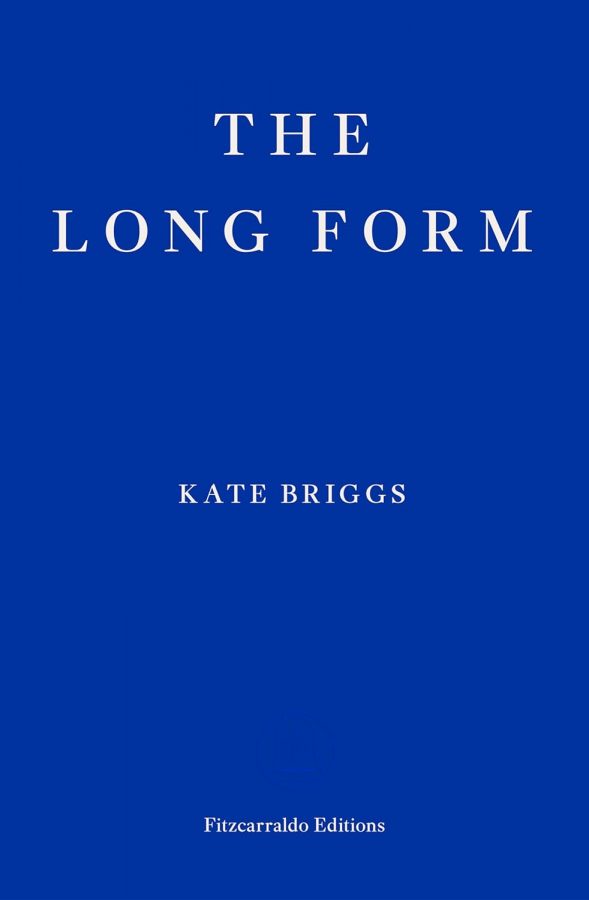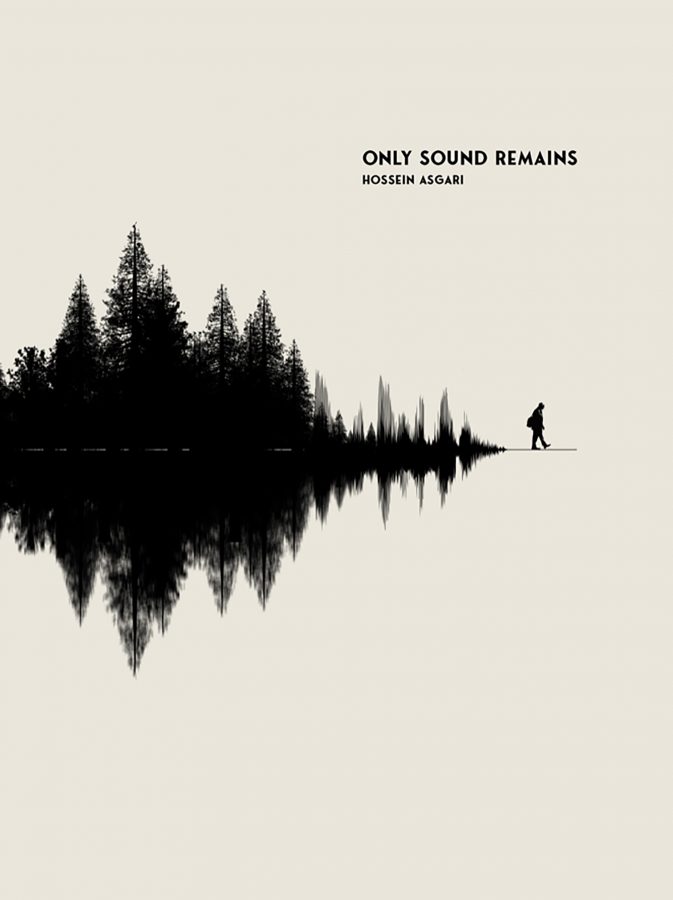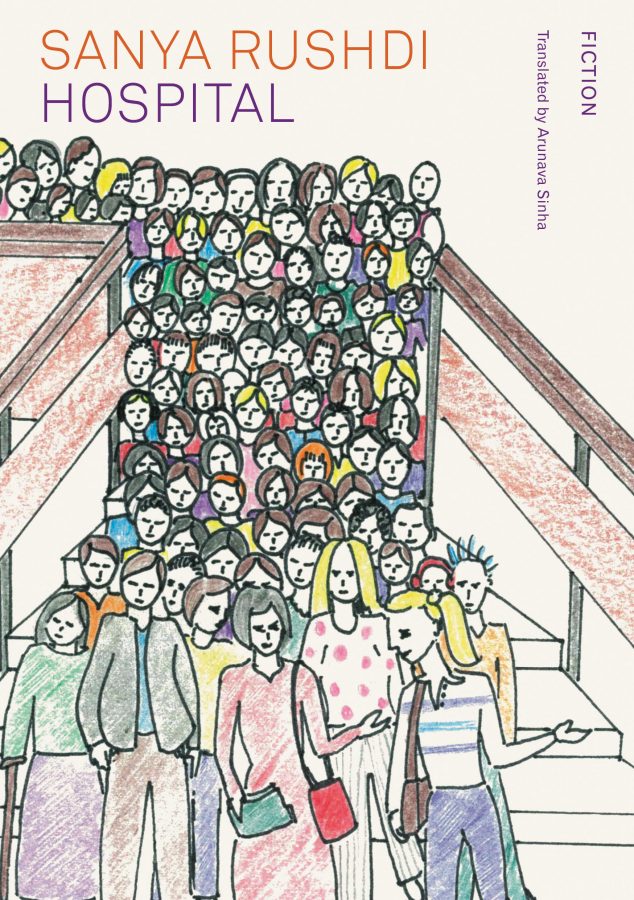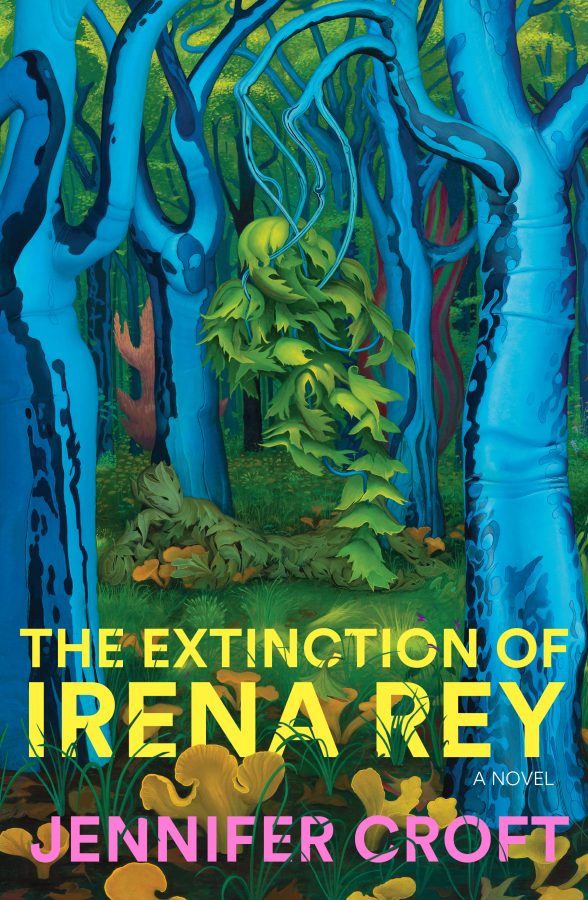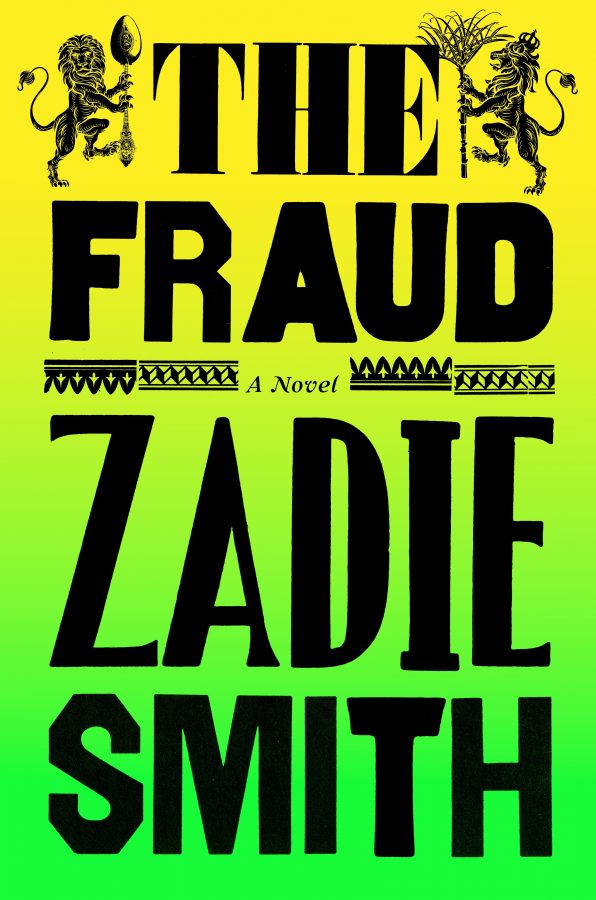American literature does not lack for accomplished short-story writers, but few have achieved the prized double of critical acclaim and commercial success on the level currently enjoyed by George Saunders. This is remarkable in itself, but even more so when one considers that his fiction is often lauded for its singularity. ‘Some writers work within a tradition,’ Zadie Smith gushed in a recent article, ‘and some create a world from whole cloth. There aren’t many who can do the whole-cloth bit, but George is one of them.’
This is, I submit, rather like praising Moby-Dick for its restraint. Saunders is a formally adventurous writer; he has his characteristic quirks and obsessions, his own distinctive style. But his work sits quite comfortably within a well-established tradition of postmodern American fiction. In fact, it is hard to think of another contemporary author of comparable renown whose aesthetic is so obviously stitched together from other writers’ old fabric scraps. His fiction is a patchwork of Donald Barthelme’s conceptual whimsy, Thomas Pynchon’s zany cultural satire, and Kurt Vonnegut’s avuncular wisdom, interwoven with an anxious humanism and a demotic turn of phrase that takes a perverse delight in malapropisms, solecisms, absurd jargon and ridiculous brand names – qualities that are more or less direct cops from David Foster Wallace.
Even if we place to one side these literary antecedents, the ‘world’ of Saunders’ fiction is unlikely to seem all that strange to anyone who has ever watched television, or visited a crappy theme park, or had any kind of interaction with a large corporation. It is a comical world of bright flat colours, artificial environments and smartmouthed characters, enlivened with twists of science-fiction and the supernatural. Saunders can dial down the quirkiness to write in a way that almost begins to resemble good-old domestic realism – the dialogue-driven family drama ‘Home’ from Tenth of December (2013), for example. He can dial it up to arrive at out-and-out cartoonishness, as he does in the political allegory The Brief and Frightening Reign of Phil (2005). But his offbeat, absurd and fanciful concepts are recognisable as fun-house reflections of the inane, commercialised, medicated and generally demeaning society we now inhabit.
Saunders is routinely described as a satirist for this reason, but his eye for the confected absurdity of modern life also contributes to the odd sense of mimetic indeterminacy that is a feature of his work. Here, for example, is a paragraph from Tenth of December, taken from the story ‘Al Roosten’, which is set at a charity bachelor auction:
‘Let’s fire it up!’ shouted the MC, a cheerleaderish blonde too old for braids, whose braids were flipping around as for some reason she pretended to jog. ‘Are we fighting drugs here today or what? Yes we are! Do us businesspeople approve of drugs for our kids? No way, we don’t, we’re very much against that! Do we use drugs ourselves? Kids, those of you who are here, believe me when I say we don’t, and never did! Because, as someone who does feng shui for a living, there’s no way I could do my feng shui if I was whacked out on crack, because my business is about discerning energy fields, and if you’re cracked up, or on pot, or even if you’ve had too much coffee, the energy field gets all wonky, believe me, I know, I used to smoke!’
As a comic turn, this is about on the level of The Simpsons or a Saturday Night Live sketch. And the similarity of tone is part of the reason the passage is so vivid and funny. But it is worth pausing to consider who or what is being satirised here. Braying dingbats? Charity auctions? Manifestly stupid attempts to warn children off drugs? There is a slightly disconcerting wobble at such moments – a sense that Saunders is not so much mocking an absurd reality as imitating the televisual culture that has familiarised this brassy style of comedy.
The ambiguity is not only deliberate, it is a crucial feature of Saunders’ moralism. His short stories reflect the considerable extent to which the lurid silliness of contemporary culture has colonised our imaginations. He frequently places his characters in situations that are risible or humiliating (or both) because he is interested in the stifling and distorting pressures of a world in which the silliness has become constitutive of reality. His ditzy MC is no more than an incidental character, a cartoon person, a pastiche of clichéd and laughable tropes – dumb blonde, grating peppiness, New Age gibberish – but she also represents an alienating superficiality that has become so prevalent that those non-incidental characters who are granted enough psychological depth to feel unhappiness and despair cannot help but be affected. ‘The truth is,’ he writes in In Persuasion Nation (2006), ‘this stupid system causes suffering wherever you look.’
The basic conflict is encoded in Saunders’ demotic prose. The eponymous Al Roosten has his jealousy and insecurity exacerbated when he agrees to participate in the charity auction alongside a more successful business rival. The story is an exacting account of his nagging sense of inadequacy and failure, the conflict between his better nature and his feelings of resentment and malice, his reluctance to admit his culpability. Yet this inner struggle is described in a self-mocking language that is intractably immature. Not even the emotional pain of a broken adult relationship can prevent his thoughts devolving into a sour comic riff that makes him sound like an embittered middle-aged version of Cartman from South Park:
They’d see through him. They’d fry his ass. People were always seeing through him and frying his ass. When he’d stolen Kirk Desner’s flip-downs, the kids on the team had seen through him and fried his ass. The time he’d cheated on Syl, Syl had seen through him, broken off their engagement, and cheated on him with Charles, which had fried his ass possibly worse than any single other ass frying he’d ever had, in a life that, it recently seemed, was simply a series of escalating ass fries.
The uneasy combination of humour and anguish is something of a Saunders trademark. And it is significant on this point that his stories do not to create ‘worlds’ in the expansive or comprehensive sense of the word, but in the enclosed and self-contained sense. They tend to be set in limited or regulated spaces (theme parks, small towns, workplaces, laboratories) which have their own internal lexicons and practices. Even when he invents entirely imaginary settings – in The Brief and Frightening Reign of Phil or the title story from In Persuasion Nation, which takes place in a parallel universe inhabited by brand mascots and characters from television commercials – there is enclosure and subjection. His characters are immersed in milieus where their horizons are limited and their behaviour is often monitored, where comedy and tragedy seem to coexist in a mutually destabilising relationship, where genuine disquiet is masked by irony and eye-rolling exasperation.
The regular irruptions of violence and death into these enclosed fictional worlds acquire their meaning in this context. On one level, these moments are counterpoints to the comical tenor of much of Saunders’ writing. They disturb the superficiality and artificial orderliness of self-contained worlds, register the existence of pain and suffering, burst bubbles of delusion or fantasy. In ‘Victory Lap’, from Tenth of December, for example, a teenage girl’s romantic daydream about meeting her ‘{special one}’ is interrupted when a serial rapist and murderer tries to abduct her. Other stories see violence and oppressiveness as systemic – inherent in technocratic and scientific modes of understanding, which are incapable of registering certain emotions and sympathetic responses. The idea is perhaps most clearly expressed in ‘93990’ from In Persuasion Nation, which describes a scientific experiment in which some monkeys are methodically poisoned to death. In the process, the story records the behaviour of one monkey in particular, whose horror and desperation are evident in his increasingly frantic signalling, the obvious meaning of which neither the controlled environment nor the scrupulously dispassionate language of the scientific report can acknowledge.
In the story ‘Bohemians’ (from the same collection), an elderly Holocaust survivor tells the young narrator that America is ‘a spoiled child ignorant of grief’. To the extent that Saunders depicts this as true, he sees the ignorance as willful. It obtains on a cultural level, not on a personal level. The Unites States is not a nation deficient in grief; it just has trouble acknowledging and expressing its grief. One of the threads that runs through Saunders’ work is a concern with the disjunction this creates. The title story in his first collection CivilWarLand in Bad Decline (1996) is set in a failing historical theme park: a trivialising recreation of a defining national trauma. The park’s sanitised version of the ghastly reality of the Civil War is mocked by the fact that it is plagued by real violence – initially in the form of marauding gangs, and then as a consequence of hiring a mentally unstable Vietnam veteran to take care of the gangs. But it is also haunted by the ghosts of a Civil War-era family: a father who was so disturbed by his war experiences that he hacked his wife and two daughters to death with a scythe before staggering into an adjacent field and blowing his brains out. The four ghosts are now fated to relive the horror of their violent deaths over and over again. This kind of anguished repetition is a recurring motif in Saunders’ fiction. His stories repeatedly depict characters who are unable to move beyond traumatic experiences, who are haunted in either a literal or a figurative sense, who are caught in tragicomic cycles of behaviour, entrapped in their unresolvable feelings of guilt and remorse.
Lincoln in the Bardo – Saunders’ first novel – is in many respects his boldest engagement with these themes. It is a frequently comical work that addresses the subject of grief. It also seeks to connect the personal experience of loss to the tragedy of an entire nation by virtue of the fact that the grieving man at its centre is none other than Abraham Lincoln, whose young son Willie died from typhoid in 1862, in the midst of the Civil War, just as the appalling scale of the mass slaughter was becoming apparent.
Most of the novel takes place in a graveyard on the night of Willie Lincoln’s interment. It is narrated by a large cast of ghosts, all of whom – with one notable exception – are trapped in the ‘Bardo’ because they feel they have unfinished business in the material world and cannot admit to themselves that they are dead. In its form, Lincoln in the Bardo is not unlike a script for a radio play (in fact, an audio version has already been recorded with an all-star cast). The ghosts, who come from many different walks of life, banter and bicker among themselves, speak of their past lives and their regrets, and contemplate the arrival of the strangely self-possessed boy who, unusually for a child, has ‘tarried’ in their realm.
As this might suggest, though it has a historical subject, Lincoln in the Bardo is not in any conventional sense a historical novel. To the extent that it has anything to say about the way we understand past events, this does not extend beyond an acknowledgement of the unreliability and partisanship of the available evidence. The circumstances surrounding Willie Lincoln’s death are established in intermittent chapters that, in keeping with the novel’s multi-voiced technique, consist of quotes drawn from a variety of sources. These are arranged so as to emphasise the contested nature of the historical record. One collects testimonies to Lincoln’s integrity and decency; another is a selection of vehement denunciations and abuse. A third is devoted to descriptions of the moon on the night in question, which is said to have been beautiful, brilliant, golden, green, crescent, full, yellow, yellow-red, silver, blue, obscured by clouds and absent.
That the novel is a ghost story renders debates about its historical veracity redundant. The Bardo is a Buddhist concept, akin to the Western notion of Purgatory: a transitional space where spirits await rebirth. But Saunders depicts this suspended state in a way that seems to owe less to Eastern religion than it does to The Addams Family or the films of Tim Burton. The ghosts who occupy centre stage are a campy collection of oddballs, more kooky than spooky. Their comical quality is emphasised by the fact that their appearances reflect the nature of their regrets and the manner of their untimely deaths. Thus Hans Vollman, who was killed by a falling roof beam just as he was about to consummate his marriage, has a dent in his forehead and an irrepressible erection. His sidekick, Roger Bevins III, was attempting suicide when he was suddenly struck by the wondrous beauty of creation, tried to change his mind, and made a dreadful flailing mess of things by falling down some stairs – he manifests as a creature with a multitude of eyes, noses and hands. The Reverend Everly Thomas, the third of the novel’s three most prominent ghosts and the sole inhabitant of the Bardo to understand that he is not only dead but damned, has his face frozen in a permanent expression of open-mouthed horror (a detail pinched, incidentally, from David Foster Wallace’s short story ‘Philosophy and the Mirror of Nature’).
Lincoln in the Bardo is a democratic novel in its multi-voiced technique, but it is also concerned with the paradoxical and fragile nature of democracy itself. It raises the question of whether a fractious republic of atomised and unequal individuals, thrown together by circumstance – rich and poor, amusing and unpleasant, masters and slaves, perpetrators and victims – might nevertheless achieve mutual understanding and a common purpose. The Bardo is presented as a kind of parallel nation of the undead, a synecdoche for the ship of state, its fenced graveyard a landbound Pequod populated by a motley crew, but stationary and captainless.
The arrival of Willie Lincoln in the Bardo and the subsequent appearance in the graveyard of the stooped figure of Lincoln himself are galvanising events that compel the ghosts to think beyond their consuming personal regrets. The symbolic importance of Lincoln is not only that he is the suffering embodiment of a nation at war with itself, but that he is a dignified yet pitiful figure who is seeking reconciliation and inner-peace on a personal level. His gravitas functions as a counterweight to the rather cartoonish quality of the Bardo’s inhabitants. The ghosts, preoccupied with their past lives and frustrated by their inability to interact with the world they have left behind, are used to their decaying bodies, stowed away in their ‘sick-boxes’, being ignored by people from the ‘previous place’; they are thus astonished to see the grieving Lincoln remove his son’s lifeless body from its coffin and hold it in his arms.
This moving early scene, with its breaching of the boundary between the living and the dead, establishes the novel’s concern with empathy. The one way the ghosts can still interact with the living is to enter their bodies and, in doing so, feel their feelings and overhear their thoughts. The novel thus shifts between an external view of Lincoln as a symbolic and almost monumental figure – he is described at one point as ‘a sculpture on the theme of Loss’ – and scenes in which the ghosts enter his consciousness and relay his anguished thoughts. This is perhaps the most audacious aspect of Lincoln in the Bardo. It seeks to convey the psychological conflict of the United States’ most revered President at a moment of profound personal and political crisis – though it is significant that, in keeping with his tragicomic aesthetic, Saunders also uses the novel’s most daring conceit to more knowing and humorous effect, culminating in a scene in which the ghosts pile into Lincoln’s body like clowns into a phonebooth, in a kind of literalised representation of the national motto E Pluribus Unum:
What a pleasure. What a pleasure it was, being in there. Together. United in a common purpose. In there together, yet also within one another, thereby receiving glimpses of one another’s minds, and glimpses, also, of Mr. Lincoln’s mind. How good it felt, doing this together!
Lincoln in the Bardo is a novel with universal ambitions. It proposes that the underlying truth of the human condition, the one thing we all have in common, is that we are suffering creatures afflicted with feelings of guilt and regret and insecurity. As the wise-beyond-his-years Willie Lincoln intuits soon after he arrives in the Bardo, every one of its inhabitants is dissatisfied in some way:
None were content All were wronged Neglected Overlooked Misunderstood
The observation is repeated much later in the novel, when Lincoln returns to the graveyard one last time to mourn his dead son. The scene is not the novel’s dramatic climax, which takes the form of a cinematic spectacle where vines come graspingly to life and ghosts are zapped into the next dimension in bursts of ‘matterlightbloom’ (a series of escalating ass fries, so to speak). But it is the culmination of the novel’s depiction of Lincoln’s grief and the point at which his private suffering is decisively conflated with the collective suffering of the nation. The passage is worth quoting at some length as an example of the novel’s technique – which has an intermittent tendency toward overdetermination and repetition – but also for the way in which it sanctifies Lincoln, presenting him at that moment as the embodiment of a universal principle of moral wisdom:
His mind was freshly inclined toward sorrow; toward the fact that the world was full of sorrow; that everyone labored under some burden of sorrow that all were suffering; that whatever way one took in this world, one must try to remember that all were suffering (none content; all wronged, neglected, overlooked, misunderstood), and therefore one must do what one could to lighten the load of those with whom one came into contact […]
hans vollmanAll were in sorrow, or had been, or soon would be.
roger bevins iiiIt was the nature of things.
hans vollmanThough on the surface it seemed every person was different, this was not true.
roger bevins iiiAt the core of each lay suffering; our eventual end, the many losses we must experience on the way to that end.
hans vollmanWe must try to see one another in this way.
roger bevins iiiAs suffering, limited beings–
hans vollmanPerennially outmatched by circumstance, inadequately endowed with compensatory graces.
roger bevins iiiHis sympathy extended to all in this instant, blundering, in its strict logic, across all divides.
hans vollman
This is presumably the kind of thing Zadie Smith has in mind when she describes Saunders as ‘a morally passionate, serious writer’. Maybe I am the only person to detect something a little Gertrudian about this observation, but it sounds to my ears rather like an indirect expression of concern that there is at least a faint possibility that someone, somewhere could mistake Saunders for a morally indifferent, frivolous writer. Would anyone bother pointing out that, say, George Eliot or Franz Kafka or Jenny Erpenbeck are ‘serious’ writers?
The implied anxiety is of interest, I think, not because it suggests that a writer who works primarily in a comic mode cannot also have a serious purpose (a proposition so obviously false that it hardly needs refuting), but because it suggests a buried insecurity about the moral authority of literature itself. The point not only bears upon the reception of Saunders’ work, but the form and content of his moralism. It is not a coincidence that among the most prominent champions of his fiction are a cohort of novelists of a certain vintage – Smith, Jonathan Franzen, Dave Eggers, Jennifer Egan – all of whom are, in one way or another, haunted by the DFW-shaped hole in contemporary American literature. It has been Saunders, more than any of his peers, who has taken it upon himself to address the issue raised by Wallace in the early 1990s, in the context of a generational debate about the cultural status and purpose of serious literature – namely, whether a work of fiction might yet affirm positive human values in a chronically frivolous cultural environment that equates irony with sophistication and ingenuousness with naivety and simple-mindedness.
At least part of the reason why Saunders has become such a lionised figure, it seems to me, is his willingness to risk moments of ingenuous affirmation, to embrace the naturalised and thus comforting notion that the true literary artist is a purveyor of moral wisdom and existential truths. His stories are littered with moralising lines about the importance of love and forgiveness, like these from ‘The 400-Pound CEO’:
How do people get like this, I thought. Can they change back? Can they learn again to love and be gentle?
And this from ‘Puppy’:
Which maybe that’s what love was: liking someone how he was and doing things to help him get better.
And this from ‘Escape from Spiderhead’:
Basically, what I was feeling was: Every human is born of man and woman. Every human, at birth, is, or at least has the potential to be, beloved of his/her mother/father. Thus every human is worthy of love. As I watched Heather suffer, a great tenderness suffused my body, a tenderness hard to distinguish from a sort of vast existential nausea; to wit, why are such beautiful vessels made slaves to so much pain?
And this from ‘In Persuasion Nation’:
‘GOD is real!’ he shouts. ‘And we may know Him! … The green symbol is a false GOD, obsessed with violence and domination! Reject him! Let us begin anew! Free your minds! Free your minds and live! There is a gentler and more generous GOD within us, if only we will look!’
These examples are not without their contextual ironies. The moment of universal sympathy experienced by the narrator of ‘Escape from Spiderhead’ is drug-induced, part of a controlled laboratory experiment, and it occurs in a story that expresses disquiet at the implications of the basic fact that (as Wallace once put it) ‘our thoughts and feelings are really just chemical transfers in 2.8 pounds of electrified pâté’; the lines from ‘In Persuasion Nation’ belong to a disgruntled polar bear, who exists to appear in a television commercial in which an eskimo hits him in the head with an axe, and he announces his divine revelation to a group of embarrassed penguins immediately after he has fallen over a cliff.
But the reiteration of similar sentiments throughout Saunders’ work implies a consistent view. At least to some extent (a considerable extent, on my reading), his stories are seeking to validate these basic precepts above the ironising implications of their fictional contexts. As a result, this propensity to spike his stories with homilies can, at times, come across as sentimental and a bit mawkish. Saunders’ seriousness and moral passion are not in question, but passion and seriousness are not guarantees of profundity. The moral universe of his fiction is relatively straightforward. To the extent that his work affirms a moral vision, it is along the lines of the injunction handed down by the benevolent Creator near the end of The Brief and Frightening Reign of Phil, after the tyrannical Phil has been vanquished:
THIS TIME, BE KIND TO ONE ANOTHER. REMEMBER: EACH OF YOU WANTS TO BE HAPPY. AND I WANT YOU TO. EACH OF YOU WANTS TO LIVE FREE FROM FEAR. AND I WANT YOU TO. EACH OF YOU ARE SECRETLY AFRAID YOU ARE NOT GOOD ENOUGH. BUT YOU ARE, TRUST ME, YOU ARE.
The imaginary world of The Brief and Frightening Reign of Phil resembles a children’s cartoon and this is a Sesame Street-grade moral. Do we approve of people being kind to one another? Yes, we’re very much in favour of that!
In his best short stories, Saunders strikes a careful and effective balance between humour and pathos, irony and sincerity. Perhaps his neatest trick is to have found in this a way to enjoy the best of all worlds. His stories depict, however ambivalently, the most absurd and frivolous aspects of contemporary reality in ways that are vivid and funny and accessible; yet they are written with enough concentrated wit and formal invention to lay claim to literary credibility (though without ever becoming so difficult that they are confusing or alienating), and they express sentiments that are worthy enough to assert a moral authority. Perhaps no author since Vonnegut has gained as much mileage from the affirmation of basic human decency.
If this sounds condescending, it is not meant to be. One of the things Saunders leads us to consider is that fundamental moral precepts are often quite simple, yet can be extraordinarily complicated to put into practice. A basic tenet of Buddhism, for example, is that desire causes suffering, and that enlightenment thus requires the transcendence of selfishness. It is easy to see the truth and wisdom in this, but achieving it is near impossible. One of the reasons fiction is a difficult medium in which to affirm simple moral truths is that it demands instantiation and dialectical movement. It rejects transcendence and unqualified affirmation in its very essence. We do not read a novel because we need to be told that we should be kind to one another (although, yes, obviously the weight of evidence suggests that we clearly do need to be told that we should be kind to one another – over and over again); we read a novel because of its dramatic specificity, which insists upon the unresolvable nature of the conflict between ideals and reality, as this conflict is played out in the consciences of its characters.
Like all good literary moralists, Saunders well understands this. He often seeks to undercut the overt signposting in his work and acknowledge the persistence of those regressive humans instincts for subversion and selfishness and cruelty. The Brief and Frightening Reign of Phil does not conclude with the Creator’s commandment to be kind, but with the reflections of a curious character named Leona, who ‘does not find Phil monstrous, but strangely beautiful’.
Lincoln in the Bardo makes similar efforts to counter its expressions of universal sympathy, but on this point neither the broad canvas of the novel form nor the historical subject matter work in Saunders’ favour. It lurches between comedy and tragedy without the nimbleness and confidence of his best stories, making large gestures like someone overacting to compenstate for the size of the theatre. The great contextualising fact of the Civil War sits at the periphery of the narrative: the extraordinary difficulty of Lincoln’s political situation is alluded to, but kept at arm’s length by the restricted setting – its primary significance is the moral burden it places upon him, the way it compounds his personal suffering. Though the novel includes the denunciations of his political enemies, these are understood to be unfair traducings of his character. His integrity is unimpeachable; his feelings of guilt and his private doubts are ennobling; the death of his son is ineluctably tragic. Lincoln is thus depicted as a conflicted man, but the novel’s view of him is unconflicted. As a result, there is something a little too neat and knowing about the sudden reversal that seeks to remind us of the paradox of his position, which occurs immediately after he has been presented as an avatar of universal sympathy:
He was in a fight. Although those he fought were also suffering, limited beings, he must– … Obliterate them … Kill them and deny them their livelihood and force them back into the fold … We must, to do the maximum good, bring the thing to its swiftest halt and– … Kill … Make the blood flow … Must end suffering by causing more suffering
Soon after this realisation, a vicious fight breaks out in the Bardo between the ghost of a slave and the ghost of an abusive slaveowner, the former rising up and smashing the latter’s skull to a ‘flat pulpy mass’, only for the slaveowner’s head to reform and the fight to begin again. The other ghosts observe that the conflict might well continue ‘into eternity’ unless there is ‘some fundamental and unimaginable alteration of reality’. This is the choice Lincoln in the Bardo places before us. We can remain trapped in a deathless cycle of conflict and torment and grief, or we can embrace the healing power of empathy and forgiveness and the prospect of rebirth. The choice is that simple, that unrealistic, and that profound.


